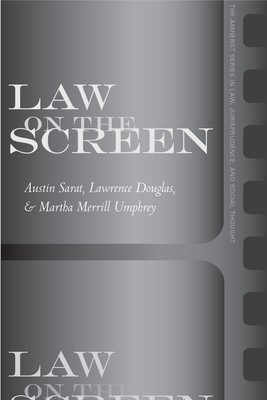
- We will send in 10–14 business days.
- Publisher: Stanford University Press
- ISBN-10: 0804751625
- ISBN-13: 9780804751629
- Format: 16.2 x 23 x 2.1 cm, hardcover
- Language: English
- SAVE -10% with code: EXTRA
Law on the Screen (e-book) (used book) | bookbook.eu
Reviews
Description
The proliferation of images of law, legal processes, and officials on television and in film is a phenomenon of enormous significance. Mass-mediated images are as powerful, pervasive, and important as are other early twenty-first-century social forces--e.g. globalization, neo-colonialism, and human rights--in shaping and transforming legal life. Yet scholars have only recently begun to examine how law works in this new arena and to explore the consequences of the representation of law in the moving image. Law on the Screen advances our understanding of the connection between law and film by analyzing them as narrative forms, examining film for its jurisprudential content--that is, its ways of critiquing the present legal world and imagining an alternative one--and expanding studies of the representation of law in film to include questions of reception.
EXTRA 10 % discount with code: EXTRA
The promotion ends in 16d.11:52:36
The discount code is valid when purchasing from 10 €. Discounts do not stack.
- Publisher: Stanford University Press
- ISBN-10: 0804751625
- ISBN-13: 9780804751629
- Format: 16.2 x 23 x 2.1 cm, hardcover
- Language: English English
The proliferation of images of law, legal processes, and officials on television and in film is a phenomenon of enormous significance. Mass-mediated images are as powerful, pervasive, and important as are other early twenty-first-century social forces--e.g. globalization, neo-colonialism, and human rights--in shaping and transforming legal life. Yet scholars have only recently begun to examine how law works in this new arena and to explore the consequences of the representation of law in the moving image. Law on the Screen advances our understanding of the connection between law and film by analyzing them as narrative forms, examining film for its jurisprudential content--that is, its ways of critiquing the present legal world and imagining an alternative one--and expanding studies of the representation of law in film to include questions of reception.


Reviews